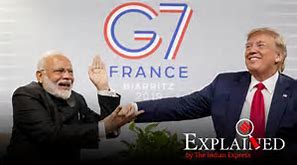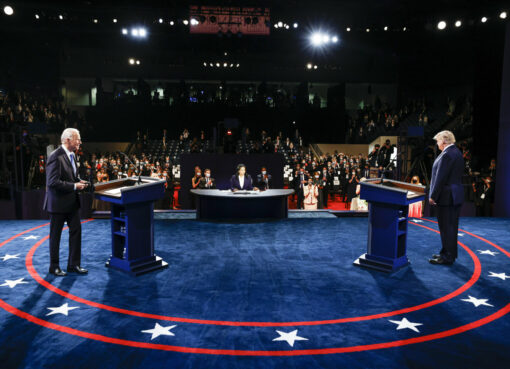A senior American diplomat once told me that “they had burnt fingers attempting to mediate on Kashmir issue and would not venture into that minefield again.”
by *Ankineedu Prasad Nallapati
A senior American diplomat once told me that “they had burnt fingers attempting to mediate on Kashmir issue and would not venture into that minefield again.”
This had been the American policy for a long time and is based on their institutional memory of dealing with Pakistan since the Afghan war with the then Soviet Union. The US has since worked behind the scenes to resolve immediate tensions, but never openly offered to mediate between India and Pakistan.
President Trump and his team have come to power insisting on dismantling current institutional mechanism and rebuild them to serve his “world view”. They are now grappling with global problems in attempting to start afresh.
Trump has claimed credit for forcing ceasefire between India and Pakistan in his characteristic annoying tone and wanted both of them to agree to his mediation, threatening to cut off trade if it’s not accepted.
He is stepping into a minefield.
Those Who Can’t Remember the Past are Condemned to Repeat It
Having deprived of his own country’s institutional experience, the Trump team is turning to the British. Secretary Marco Rubio reached out to his British counterpart David Lammy and both agreed to maintaining ceasefire and encouraging direct dialogue between India and Pakistan.
The British Army and its external intelligence service, MI6, have maintained continued interest in the subcontinent, mostly supportive of the Pakistan military forces. They had played, behind the scenes, a significant role negotiating deals between the US, Pakistani establishment, and the Taliban during the Afghan operations past decade.
In line of all his predecessors, Pakistan’s Army chief, Gen. Asim Munir has also maintained close links with British military forces and its Foreign Office. He visited London in mid-February, the third time in over two years since assuming office.
“These ties are not just historic but keep evolving due to the personal interests of Pakistan’s ruling elite…and there’s hardly a senior commander who doesn’t have close family ties, personal stakes, or some form of dependence on the British establishment,” says Ayyesha Siddiqa, a respected Pakistani scholar now working with South Asia Institute at University of London.
She further writes that since taking over as the Army Chief, Asim Munir has heavily invested in the bilateral relationship including giving some significant projects to British companies, such as Indus River management. It may be noted that the Army’s recent scheme to divert Indus waters to its newly acquired lands in Cholistan in Punjab led to widespread protests in Sind province.
Has Trump forgotten his own experience of British intelligence operatives, who had produced a Russia dossier, known as The Steele dossier, suggesting his links to Russia which became the key report for attempts to impeach him during his first term in 2019.
What’s Pakistan’s Game
Those who still demand evidence of Pakistan Army’s role in April 22 Pahalgam terrorist killings selectively targeting Hindu men either do not know the history of the region or pretend to ignore it.
One of its several objectives was to provoke India to launch a military attack and then use it to create a panic among the international community, specifically the US, of the prospect of a nuclear war to force them to intervene for mediation between India and Pakistan.
This is not the first time Pakistan resorted to such a strategy.
Trump administration is now proudly claiming that they have stopped a nuclear war.
How naive they are!
Pakistan had leaked reports of Prime Minister Shehbaz Sharif calling for a meeting of the National Command Authority, which oversees nuclear arsenal, after Indian Air Force attacked their Nur Khan airbase near Army HQs in Rawalpindi.
No such meeting was ever called in the past week as confirmed by their Defense Minister. The leaks were deliberate to sound alarm in London and Washington DC.
Pakistan has long been using nuclear blackmail while carrying their terrorist operations as part of military doctrine of “bleed India with a Thousand Cuts.”
India’s responses to such attacks have, therefore, been very calculated, calibrated and limited to terrorist camps and training centres. This has been repeatedly stated during its current operations and they were expanded to military targets only after Pakistan did so.
How India Treats Trump Threats
Trump is now literally threatening India to accept his mediation for talks with Pakistan, or else the US will stop trading, which he has weaponized to force the world to reconcile with his terms.
Prime Minister Narendra Modi has clearly articulated Indian policy. “Terrorism and Talks can’t go together,” and if talks have to happen, they will be only on “Terrorism and Return of parts of Kashmir that Pakistan has occupied.”
Some foreign diplomats posted in Delhi confided in me their amazement how the whole country gets united when it’s about Pakistan and Kashmir.
It’s true that all divisions disappear when Pakistan indulges in heinous terrorist attacks, such as the Pahalgam. Muslims of the country overwhelmingly condemned Pakistan Army and fully backed New Delhi’s military actions, displaying utter contempt for Gen. Munir’s repetition of `two-nation’ theory of Muslims cannot live with Hindus.
Indian government may have agreed to several trade concessions to the US in an attempt to further strengthen bilateral relations, but Trump’s current threats is equivalent to “crossing the Red Lines.”
No government will survive in India if it’s seen bending to someone’s diktats.
Diplomacy will have to be in full drive to reach out to Trump administration and bring all facts and history to politely explain Indian position.
Indian Americans can play a significant role as they have much better access to the Trump administration and can explain well in their “own language.”
Pakistani establishment cannot get away with their terrorist misadventures and nuclear blackmail any more and the message shall be loud and clear.
Lest, there will be more of 9/11s, and London Tube bombings world over.
(*Ankineedu Prasad Nallapati is President of the Hyderabad-based think-tank, “Deccan Council for Strategic Initiatives and former Additional Secretary to Govt of India)




